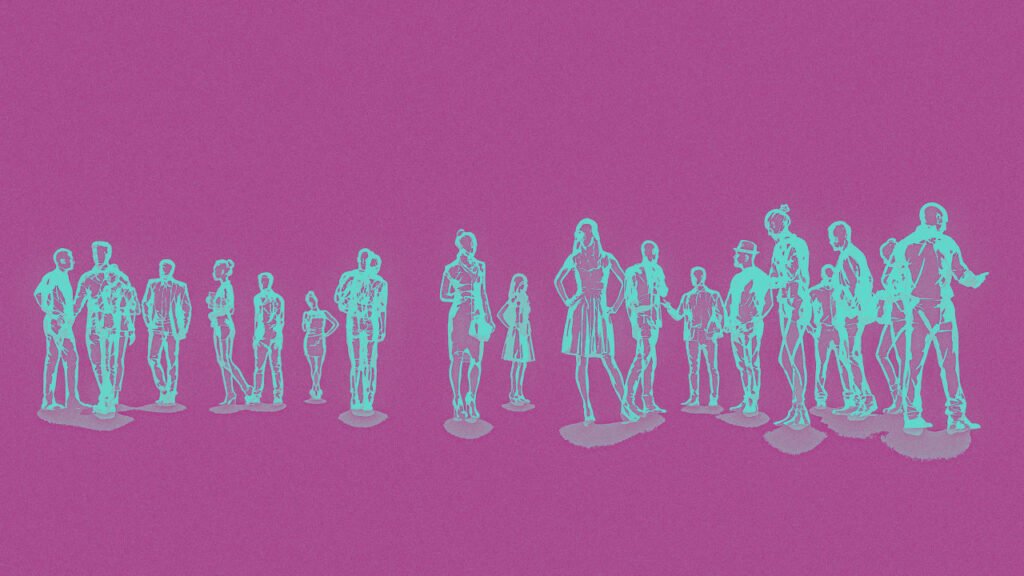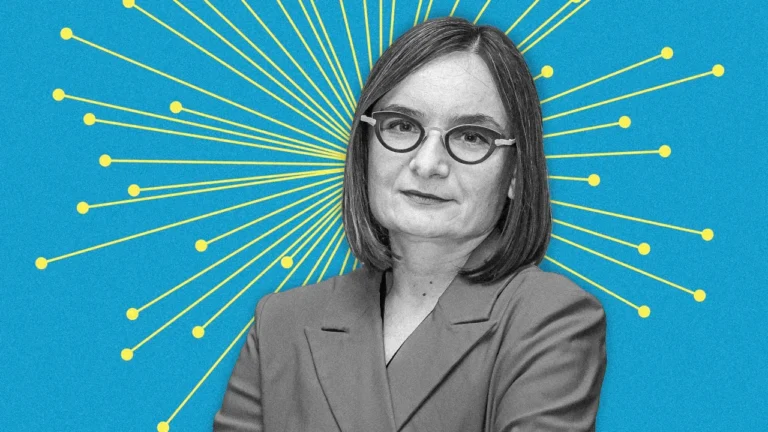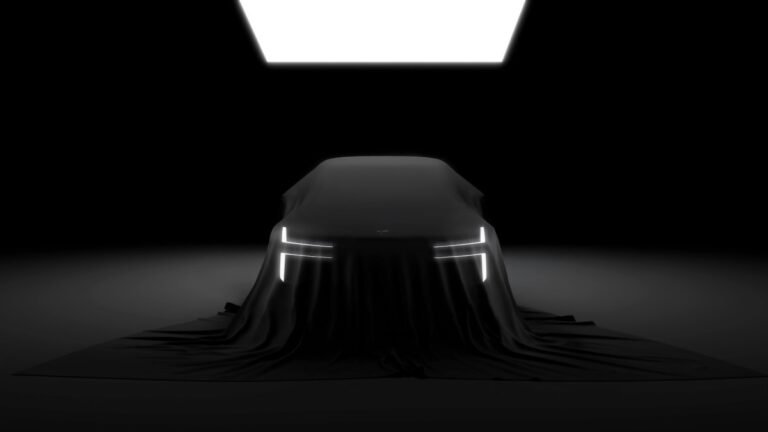
“Human beings can be run through the digital copy machine and be misused for all sorts of purposes and I’m not willing to accept that,” Danish Culture Minister Jakob Engel-Schmidt recently told The Guardian after Denmark introduced an amendment to its copyright legislation so people could own their own likeness. “In the bill we agree and are sending an unequivocal message that everybody has the right to their own body, their own voice, and their own facial features, which is apparently not how the current law is protecting people against generative AI.”
The Danish culture minister is right. We need to stop this problem decisively. Deepfakes are a serious problem—one that is fundamentally altering our perception of reality. People are getting bullied, coerced into doing things against their will, and even framed for crimes they didn’t commit. Stopping the software will not work. That ship sailed a long time ago. And normal people don’t have the resources to fight in court for a deepfake to be taken down.
The answer, like the Danish government has done, is to include personal likeness in copyright law. The proposal establishes legal definitions for unauthorized digital reproductions, specifically targeting “very realistic digital representation of a person, including their appearance and voice.” The Danish administration intends to introduce the legislative proposal for public input ahead of the summer parliamentary break, with formal submission planned for autumn.
Under the revised copyright framework, Danish citizens would gain legal authority to request removal of nonconsensual deepfake content from digital platforms. The legislation extends protection to cover unauthorized artificial recreations of artistic performances, with potential financial remedies for victims. Creative works such as parody and satirical content remain exempt from these restrictions.
“Of course this is new ground we are breaking, and if the platforms are not complying with that, we are willing to take additional steps,” Engel-Schmidt said. Digital platforms that fail to comply face substantial financial penalties, with potential escalation to European Commission oversight. “That is why I believe the tech platforms will take this very seriously indeed,” the minister added. Denmark plans to leverage its upcoming EU presidency to promote similar legislative approaches across European nations.
Fix copyright to fix the deepfake problem
If imposing heavy penalties on any social network or video service that hosts a copyrighted work sounds familiar, that’s because it is how the Digital Millennium Copyright Act (DMCA) works in the United States. Under U.S. copyright law and similar systems globally, copyright protection is granted exclusively to original creative works fixed in a tangible form, such as writings, music, artwork, software, films, or photographs. Crucially, copyright law explicitly excludes protection for abstract concepts like ideas, facts, systems, methods, or short phrases, which may fall under trademark law but can’t be copyrighted. Most importantly, it does not extend to fundamental aspects of an individual’s identity, including their likeness, voice, or persona.
Copyright protects specific, authored expressions—like a particular photograph of you or a recording of your voice singing a song—but not the underlying person. Your face, body, or general identity can be reproduced, although there are rights concerning the commercial or personal use of one’s likeness, voice, or identity. They are addressed by separate legal doctrines, primarily the right of publicity and the right to privacy.
The problem is that, to fight someone from using your likeness under that framework, you will need a lot of power and money. Someone like Scarlett Johansson could take down OpenAI’s version of her voice because it sounded too much like her with a simple tweet and the threat of litigation. Likewise, the lawyers of famous people like President Obama or footballer Christiano Ronaldo can strike down any unsanctioned use of their likeness.
“If Ronaldo complains about a deepfake video of him, a platform will take the video down,” Metaphysic CEO Tom Graham told me in an interview last year talking about his company’s efforts to copyright anonymous people’s likeness. “But if Joe Schmoe complains about his right of publicity or privacy, the platform will shrug. Unless Mr. Schmoe fires a DMCA complaint, that is. Then YouTube will take down the deepfake instantly, because not complying with a DMCA takedown notice will have serious consequences for YouTube that could reach millions of dollars.”
Graham has been trying to fix this issue for a while. Metaphysic was the company that made deepfake Tom Cruise viral and then went on to work with iconic “brands” like ABBA, Tom Hanks, and Elvis himself, to make legal digital clones for use in concerts, movies, and TV. The last time I spoke with him, his company was working on a pioneering system that allowed famous people and individuals to register the copyright of AI-generated versions of themselves.
“Copyright law says that you can’t copyright anything other than works of human authorship,” Graham explains. “So, you can’t copyright yourself because you are from nature, right? You are not a work of human authorship.” But what if you could use AI to create a digital self and copyright that? That will effectively give you right over any digital representation of yourself, potentially putting you under DMCA protection without the Danish copyright patch.
“What we’re doing here is we are creating the AI character of you. So, just like Disney can own Mickey Mouse and the Avatar characters, you can own the character that happens to look exactly, perfectly like you,” he told me. The process involves creating an AI-generated avatar from user-provided video, which becomes a copyrightable work because it’s technically an artificial creation, even though it looks identical to the real person.
“If somebody takes a video of you in real life, you don’t have any claim. But if someone makes a character that looks just like you, that looks exactly like your character, then we are trying to say that that unauthorized character infringes your character,” Graham described. “So, you’re not copywriting yourself. You’re copywriting this AI character of yourself.”
In theory, this would give people instant practical enforcement benefits. Under current takedown procedures, when someone with registered copyright complains about infringing content, platforms must remove it within 24 hours. “That’s the remedy. That’s the thing you’re looking to do,” Graham says. For deepfake victims, this creates a powerful tool.
He already submitted his own AI likeness for copyright registration with the U.S. Copyright Office, though he’s still awaiting a decision. The process was designed specifically to address recent Copyright Office decisions that denied protection for AI-generated images from tools like Midjourney, which were deemed to lack sufficient human authorship. “We designed this system to embed that human control and authorship into every layer of the process. Just the same as if you were using Photoshop to design a new character,” Graham explains. The system requires users to manually curate their video data and select specific frames, creating what Graham argues is sufficient human involvement to qualify for copyright protection.
If that sounds convoluted to you, you are not wrong. Denmark’s legislative approach offers a more direct path than the complex workarounds required in countries like the United States. By explicitly granting individuals rights over their digital likeness, the Danish law could provide the legal foundation needed to effectively combat deepfake abuse. Whether the European Union follows Denmark’s lead may determine how quickly this new form of digital rights protection spreads across the world, hopefully changing the mind of U.S. legislators in the process.





